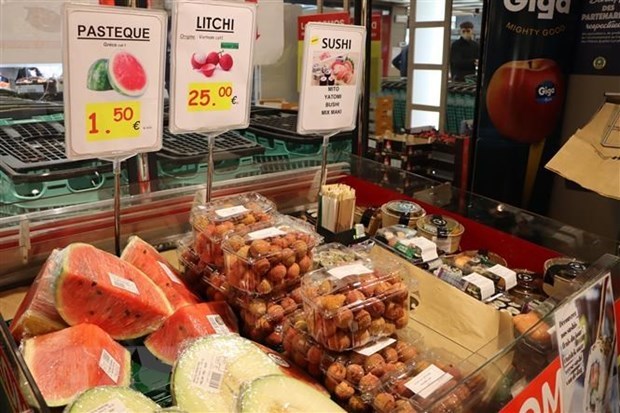Firms offered recommendations to boost exports to EU
Europe is a large market for Vietnamese goods, but businesses need to grasp its quality standards and consumption trends so as to fully capitalse on this market, heard an online workshop held on July 7.
Europe is a large market for Vietnamese goods, but businesses need to grasp its quality standards and consumption trends so as to fully capitalse on this market, heard an online workshop held on July 7.
Nguyen Tuan, Deputy Director of the Investment and Trade Promotion Centre of Ho Chi Minh City, said trade between Vietnam and Europe has recorded encouraging results in the recent past, and it is forecast to grow even more strongly thanks to the EU - Vietnam Free Trade Agreement (EVFTA).
Bilateral trade turnover saw a 12-fold increase from 4.1 billion USD in 2000 to nearly 50 billion USD in 2020. Vietnam’s exports to the EU surged by 13-fold from 2.8 billion USD to 35.1 billion USD during the period.
Last year, Vietnam posted about 29 million USD in trade surplus with the EU despite the COVID-19 pandemic. The main importers of Vietnamese goods include Germany, France, and Poland.
Tuan said as the pandemic is still wreaking havoc on the global economy and trade, Vietnam, including HCM City, has been working hard to connect local enterprises with foreign markets via online platforms and new sale channels. As a result, trading has been maintained, thus keeping supply chains uninterrupted.
Adam Koulaksezian, Director of the French Chamber of Commerce and Industry in Vietnam (CCIFV), noted Vietnam currently ranks 15th in the world and first in ASEAN among trade partners of the EU.
Thanks to the EVFTA that took effect in August 2020, tariff barriers have been lifted for a number of exports from both Vietnam and the EU, creating momentum for bilateral trade. Export and import between the two sides have been on the rise and predicted to grow further in the time ahead, which will be a great opportunity for Vietnamese exporters in many industries, he said.
However, Koulaksezian added, EU consumers are paying more attention to sustainability, including origin traceability of products, corporate social responsibility, and environmental protection. Therefore, Vietnamese businesses should ensure the sustainability of their products and build an export strategy matching the demands and trends in foreign markets.
Pointing out certain challenges to bilateral trade, Business Support Service Director at CCIFV Nguyen Dac Boi Quynh said the complex COVID-19 situation, especially in southern Vietnam where many wood and aquatic product processing firms are located, is forcing businesses to simultaneously implement social distancing and sustain production.
Other challenges include the requirements for product origin traceability and different types of certificates, and the fast-changing consumption trends in the EU.
Sharing her business’s experience, Pham Thi Hong Quang, Director of the Viet Source Handicraft Co. Ltd, said the company has built its infrastructure meeting importers’ requirements, shifted to online marketing in the face of the pandemic, and stay updated with new consumption trends in the EU, which has helped its shipments to this market increase 20 percent from the pre-pandemic period.
She recommended enterprises that want to access this market to make proper investment right from the beginning to meet quality requirements, update themselves with consumption trends, and make use of modern marketing channels./.









